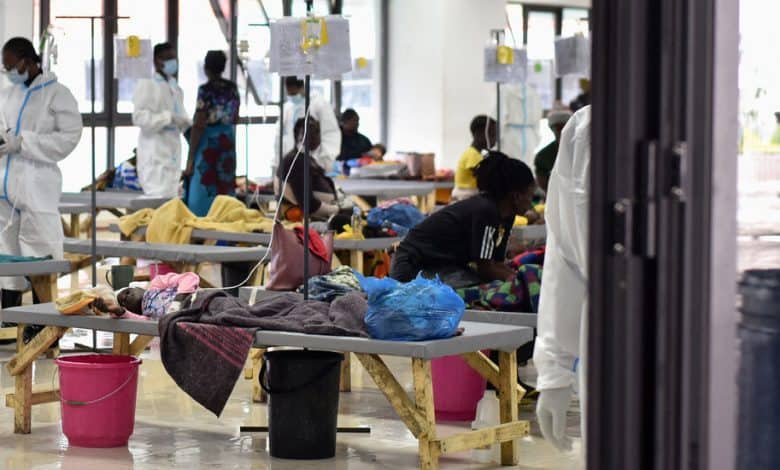Deadliest Cholera Outbreak in Past Decade Hits Southern Africa

Sandra Mwayera wailed as her older brother slouched next to her in the back seat of a car — he had died from cholera as he waited for treatment among dozens of others outside a hospital in Zimbabwe’s capital, Harare.
“My brother! My brother! Why have you abandoned me?” she pleaded. “Come back, please. Come back!”
In neighboring Zambia, inside the 60,000-seat National Heroes Stadium in the capital, Lusaka, rows of gray cots lined rooms at a makeshift treatment center where 24-year-old Memory Musonda had died. Her family said they were not informed until four days later — the government buried her, and they have yet to locate her grave.
Ms. Musonda’s uncle, Stanley Mwamba Kafula, said the family was “disturbed” and “heartbroken.”
Active outbreaks of cholera, a waterborne bacterial disease, are now raging in five countries in central and southern Africa, ranging from as far north as the Democratic Republic of Congo, and down to Mozambique.
The epidemic has spread over the past two years, infecting more than 220,000 and killing more than 4,000 people in seven countries. This is the deadliest regional outbreak in terms of cases and deaths to hit Africa in at least a decade, said Dr. Patrick Otim, who oversees the cholera response for the World Health Organization in Africa. Public health workers in Africa say it is rare to see so many cases in so many countries at the same time.
Cholera cases in Africa had actually been on a downward slide and hit a low in 2020, he said. But then came an uptick in West Africa in 2021, followed by the current outbreak in the southern part of the continent.
We are having trouble retrieving the article content.
Please enable JavaScript in your browser settings.
Thank you for your patience while we verify access. If you are in Reader mode please exit and log into your Times account, or subscribe for all of The Times.
Thank you for your patience while we verify access.
Already a subscriber? Log in.
Want all of The Times? Subscribe.